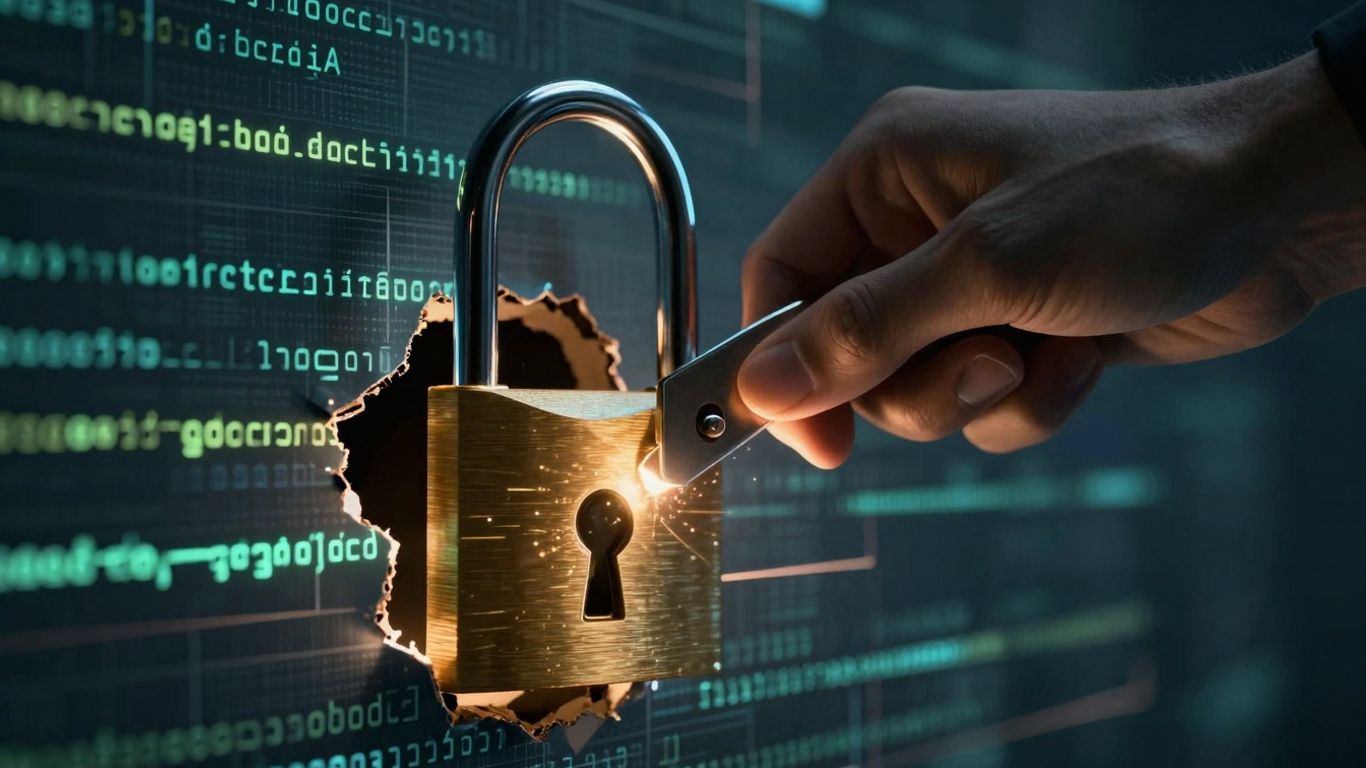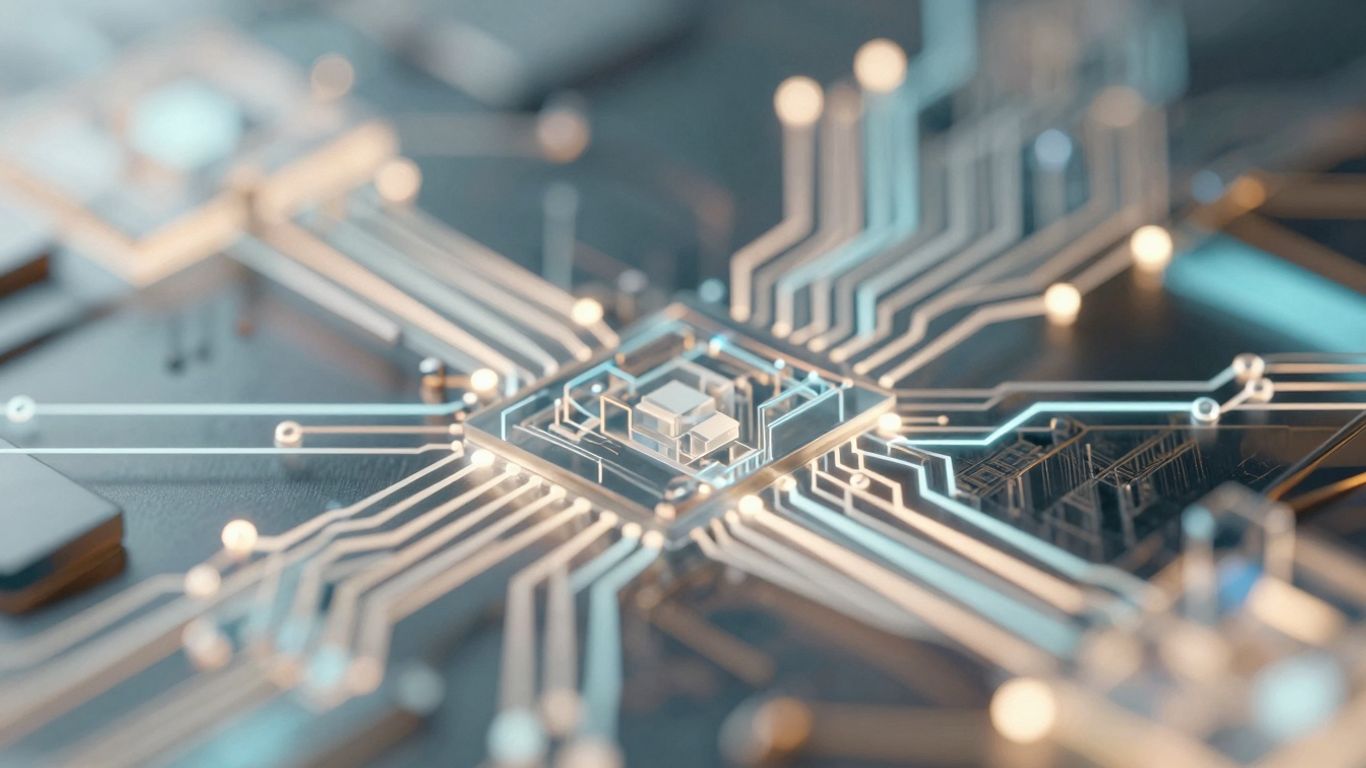[ newsletter ]
Stay ahead of Web3 threats—subscribe to our newsletter for the latest in blockchain security insights and updates.
Thank you! Your submission has been received!
Oops! Something went wrong. Please try again.
Explore how AI enhances blockchain risk management, from threat detection to smart contract security.





In today's digital world, the combination of blockchain technology and artificial intelligence (AI) is changing how we manage risks. Blockchain offers secure and transparent transactions, while AI enhances our ability to detect threats and vulnerabilities. This article explores how AI tools are helping to protect blockchain systems from various risks, making them safer for everyone involved.
Artificial Intelligence (AI) is transforming how we manage risks in blockchain technology. AI enhances the security and efficiency of blockchain systems, making them more resilient against various threats. Here’s how AI contributes to this field:
AI's integration into blockchain risk management represents a significant shift towards a more proactive approach, allowing businesses to anticipate and handle risks efficiently.
In summary, AI plays a vital role in enhancing blockchain risk management by improving threat detection, automating assessments, and providing predictive insights. This evolution is essential for maintaining security in an increasingly complex digital landscape.
In the world of blockchain, AI plays a crucial role in enhancing security measures. As cyber threats become more sophisticated, AI technologies are being integrated to provide robust defenses. Here are some key areas where AI is making a significant impact:
AI's integration into blockchain security not only enhances protection but also fosters a culture of continuous improvement in threat management.
In summary, AI-driven cybersecurity measures are essential for safeguarding blockchain networks against evolving threats. By leveraging real-time detection, behavioral analysis, and automated responses, organizations can significantly enhance their security posture and protect valuable assets.

Smart contracts are self-executing agreements stored on a blockchain. They offer many benefits, but they can also be vulnerable to attacks. AI can significantly enhance the security of these contracts. Here’s how:
The integration of AI in smart contract security not only speeds up the auditing process but also improves accuracy and compliance, making it a vital tool in the blockchain ecosystem.

AI plays a crucial role in spotting phishing and scam activities in the blockchain space. By analyzing transaction patterns and user behavior, AI can:
AI systems can continuously monitor transaction patterns to flag any irregularities. This includes:
With AI, organizations can set up real-time alerts for potential fraud. This allows for:
AI's ability to analyze vast amounts of data quickly makes it an essential tool in the fight against fraud in blockchain. By leveraging AI, organizations can stay one step ahead of fraudsters, ensuring a safer digital environment.
Transparency is crucial in AI systems, especially in cybersecurity. When AI makes decisions, it’s important to understand how those decisions are made. This helps ensure that the systems are fair and accountable. Organizations should:
AI systems often require large amounts of data, which can lead to privacy concerns. To protect personal information, organizations can:
AI algorithms can sometimes be biased, leading to unfair treatment of certain groups. To combat this, organizations should:
In the world of AI and blockchain, ethical considerations are not just optional; they are essential. Ensuring fairness, transparency, and privacy can help build trust in these technologies and their applications.
The future of AI in blockchain risk management looks very bright. AI algorithms are expected to become more advanced, allowing for better predictions and risk assessments. This means businesses can expect more accurate insights into potential threats.
As AI technology continues to grow, its integration with blockchain platforms will become more common. This will help in creating more secure systems that can automatically adapt to new threats. For example, AI can analyze transaction patterns to identify unusual activities that may indicate fraud.
With the rapid development of AI and blockchain, regulatory challenges will also increase. Organizations will need to stay updated with changing laws to ensure compliance. This is crucial for maintaining trust and security in blockchain applications.
The combination of AI and blockchain is not just a trend; it’s a significant shift that can enhance security and efficiency in various industries.
AI has been successfully integrated into various blockchain applications, showcasing its potential in risk management. Here are some notable examples:
The implementation of AI in blockchain security has provided valuable insights:
Looking ahead, the role of AI in blockchain risk management is expected to grow:
The integration of AI in blockchain risk management is not just a trend; it represents a fundamental shift towards a more proactive and resilient approach to security.
In conclusion, AI plays a crucial role in managing risks associated with blockchain technology. By analyzing large amounts of data, AI can quickly spot potential threats and help organizations respond faster. This means that businesses can protect their assets and maintain trust with their customers. While AI can't replace human expertise, it can significantly enhance security measures. As blockchain continues to grow, using AI for risk management will be essential for keeping systems safe and secure.
AI helps find and stop risks in blockchain systems by quickly analyzing large amounts of data to spot unusual activities.
AI can check smart contracts for mistakes in the code and watch for any strange behavior that might indicate a security issue.
AI is used for detecting unusual patterns, analyzing user behavior to prevent insider threats, and responding to incidents automatically.
AI can monitor transactions for signs of fraud, like phishing scams, and send alerts in real-time when it spots something suspicious.
There are worries about how AI makes decisions, privacy issues, and the possibility of bias in the algorithms used.
We can expect better AI tools, more integration of AI with blockchain, and new rules to keep up with these technologies.


